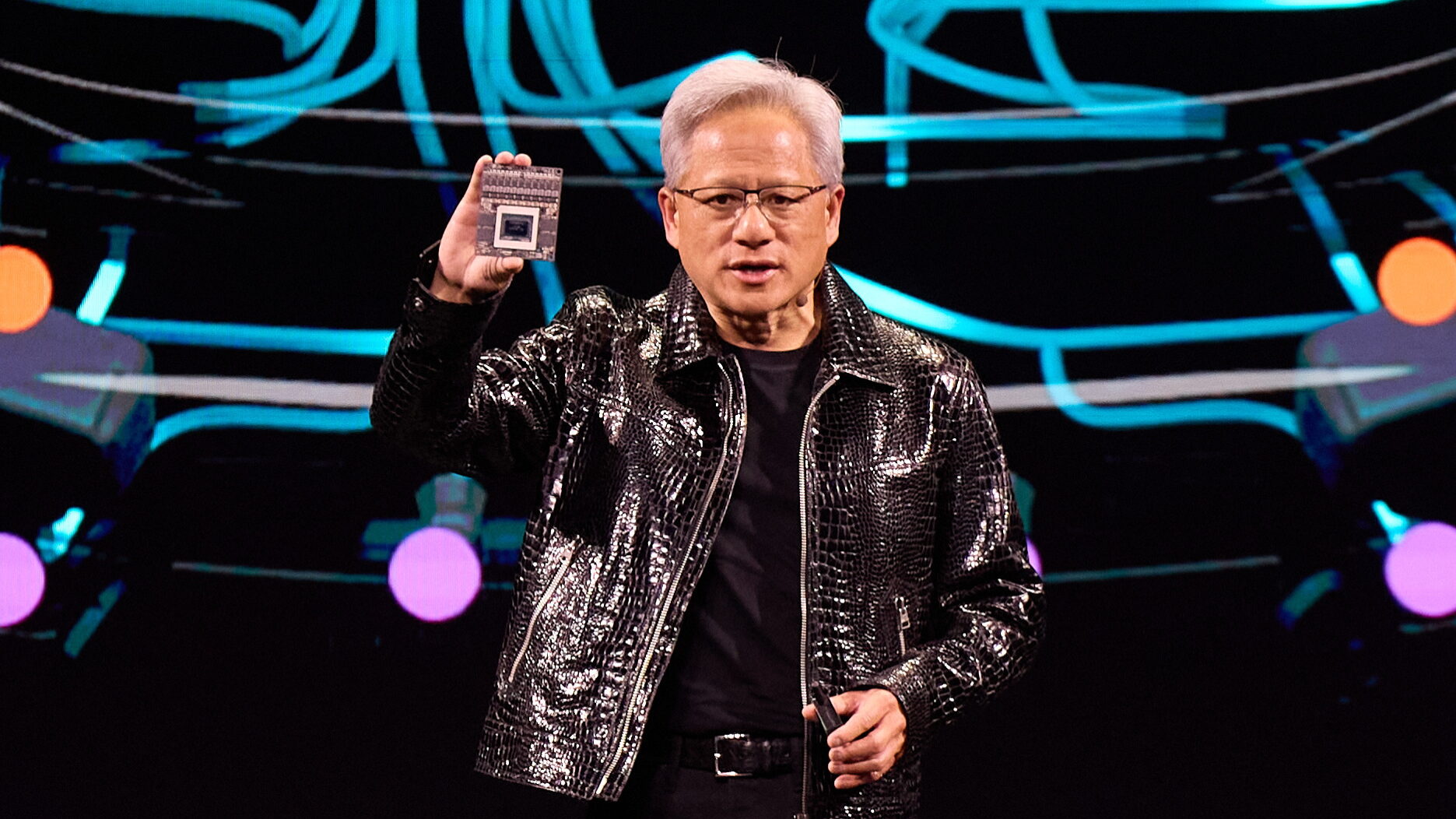Has the bubble burst? Nvidia's results test investors' appetite for AI

Nvidia's quarterly results, which will be released this Wednesday after the close of trading on Wall Street, will provide investors with new insights into demand for artificial intelligence (AI) processors and the level of dynamism in this area. The main technological trend of the last two years has made the graphics card maker the most valuable listed company in the world, exceeding four trillion dollars and accumulating gains of 30% since the beginning of the year.
Expectations are sky-high. Investors are eager for returns, following the hundreds of billions of dollars being invested in AI products, services, and infrastructure. Analyst consensus compiled by Refinitiv points to revenue of $46 billion in the fiscal quarter ending in July, despite the company's ban on sales to China—which, if confirmed, would represent 53% growth compared to the previous quarter. Still, it's below the 69% increase recorded in the first quarter.
Nvidia's results will therefore once again be a test for the market. On the one hand, the company will have to prove whether such a valuation is justified, which gives it a weighting of over 7% in the S&P 500 financial index . On the other, confidence in the sector itself is also at stake. If expectations are disappointed, Nvidia's shares could suffer a shakeup, dragging down other risk assets, especially technology stocks. On Tuesday, the options market pointed to a $260 billion swing in the company's market capitalization, either up or down, following the release of quarterly data, Reuters reported .
powered by Advanced iFrame free. Get the Pro version on CodeCanyon .
Note: If you are accessing through apps, click here to see the graph.
Nerves on edgeSentiment is relatively fragile. Last week, tech stocks fell after the release of a report from an MIT project concluding that 95% of organizations that implemented generative AI solutions saw no return . "Only 5% of integrated AI pilot projects are generating millions in value, while the vast majority remain stagnant, with no measurable impact on the bottom line," reads the study, titled " The GenAI Divide: State of AI in Business 2025. "
Furthermore, the CEO of OpenAI, the company that ushered in this new era of AI with the launch of ChatGPT in 2025, has publicly stated that he doubts these valuations are justified, calling it "crazy" that some AI startups with "three people and an idea" are receiving funding at such high valuations. "That's not rational behavior," Altman said in an interview with The Verge a few days ago.
"I believe some investors will probably lose a lot of money, and I don't want to minimize that; it's a bummer. There will be periods of irrational euphoria. But overall, the value [of AI] to society will be enormous," said the CEO of OpenAI . The warning that we may be facing a bubble naturally dampened sentiment in the financial markets.
All of this is crucial for Nvidia, which manufactures the world's top graphics cards used by the computers that train and power these algorithms. Once known for video games, and then for cryptocurrencies , the company now has new products in its lineup, such as the H100 and H200 processors, and the brand-new Blackwell chip line, which features 208 billion transistors. This unparalleled capacity for innovation, in a highly specialized sector with little competition, should continue to fuel buyer appetite.

Despite this positive chapter in the company's history, Nvidia has an Achilles' heel: China. In April, the Trump administration blocked the chipmaker from exporting H20 graphics processors to China , a less powerful version of its flagship product, which had been specifically designed for that market. The decision was later reversed, and earlier this month, the Commerce Department reauthorized the sale of H20 processors to the Chinese market. It's unclear whether China will want to buy them now.
In recent weeks, the international press has reported on efforts by several Chinese regulators to limit companies' purchases of H20 chips. The decision, according to the Financial Times , was made in light of statements by the US Secretary of Commerce that were seen as "insulting" by the Beijing regime. "We don't sell them our best product, nor the second-best product, nor even the third-best. We want to sell the Chinese enough to get their programmers hooked on American technology, that's the thinking," stated Howard Lutnick.
Despite Nvidia CEO Jensen Huang's visits to China as part of efforts to revive Nvidia's business in that market, Chinese authorities are reportedly determined to invest in technology developed by companies like Huawei and Cambricon. In fact, the next model from DeepSeek, the Chinese AI company that gained worldwide fame after launching an advanced AI model trained at low cost, is already being developed using Huawei processors.
No one knows for sure what the limits of the current AI wave are. What's certain is that, at least for now, none of the major tech giants are considering reining in investment. Data cited by the FT estimates that Microsoft, Google, Meta, and Amazon will invest $350 billion in AI infrastructure , particularly in data centers . These are precisely Nvidia's main customers, in what is currently the company's main market.
ECO-Economia Online





